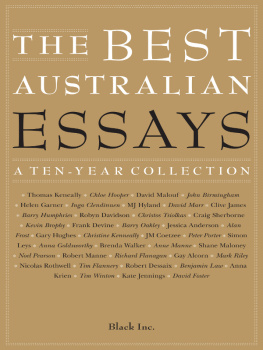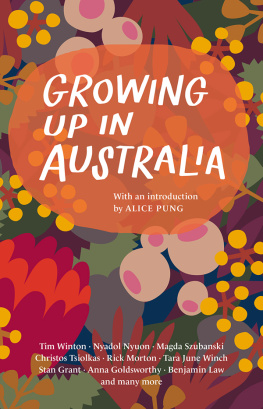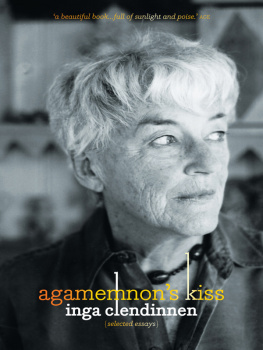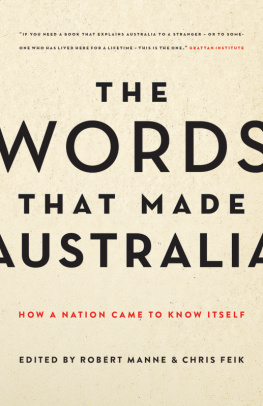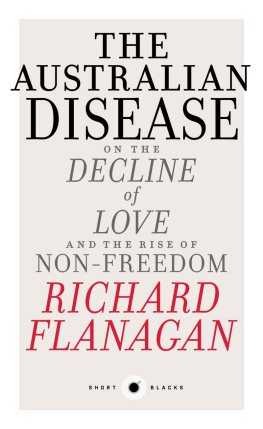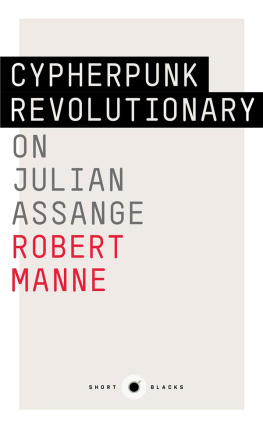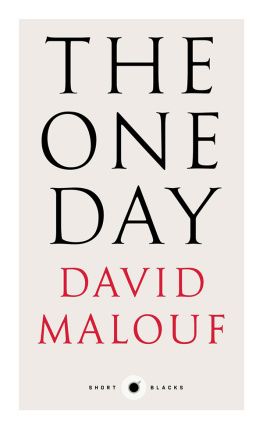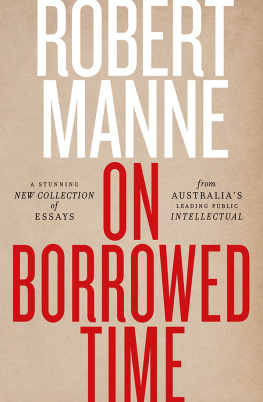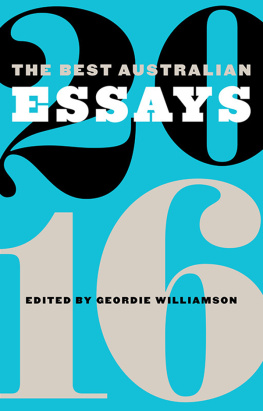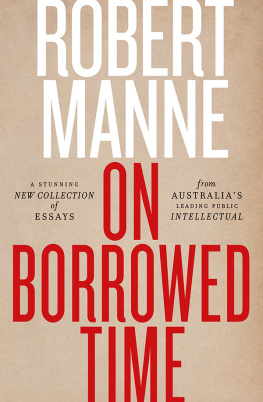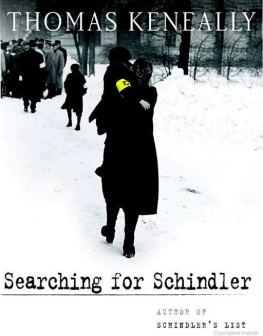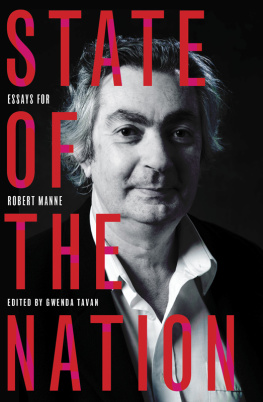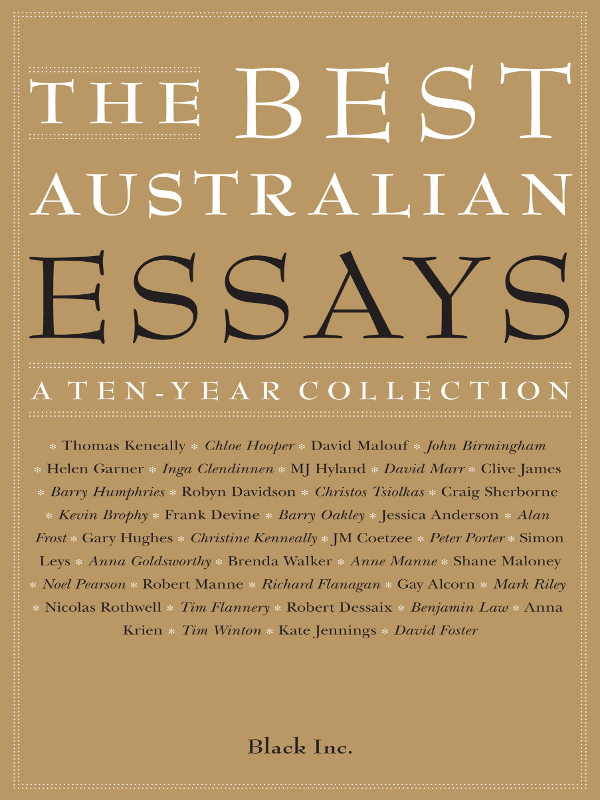
The Best Australian Essays:
A Ten-Year Collection
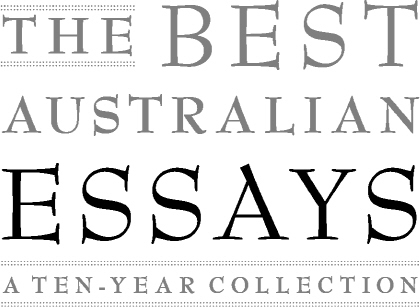

Published by Black Inc.,
an imprint of Schwartz Media Pty Ltd
3739 Langridge Street
Collingwood VIC 3066 Australia
email: enquiries@blackincbooks.com
http://www.blackincbooks.com
Introduction & this collection Black Inc., 2011.
Individual essays retained by the authors.
ALL RIGHTS RESERVED.
No part of this publication may be reproduced, stored in a retrieval system, or transmitted
in any form by any means electronic, mechanical, photo copying, recording or
otherwise without the prior consent of the publishers.
e-ISBN: 9781921870156
Every effort has been made to contact the copyright holders
of material in this book. However, where an omission has occurred,
the publisher will gladly include acknowledgement in any future edition.
Contents

Thomas Keneally
Chloe Hooper
David Malouf
John Birmingham
Helen Garner
Inga Clendinnen
M.J. Hyland
David Marr
Clive James
Barry Humphries
Robyn Davidson
Christos Tsiolkas
Craig Sherborne
Kevin Brophy
Frank Devine
Barry Oakley
Jessica Anderson
Alan Frost
Gary Hughes
Christine Kenneally
J.M. Coetzee
Peter Porter
Simon Leys
Anna Goldsworthy
Brenda Walker
Anne Manne
Shane Maloney
Noel Pearson
Robert Manne
Richard Flanagan
Gay Alcorn & Mark Riley
Nicolas Rothwell
Tim Flannery
Robert Dessaix
Benjamin Law
Anna Krien
Tim Winton
Kate Jennings
David Foster

This book selects the best essays of the past ten years, as have appeared in the Best Australian Essays annuals.*
It draws on the work of several eminent editors Peter Craven, Robert Dessaix, Drusilla Modjeska, David Marr, Robyn Davidson and Robert Drewe all of whom laboured mightily to reduce the output of a year to its alluring essence.
The book you hold in your hands takes that ten years of writing and distills it yet further. Our aim has been to produce a book of great variety, but uniform quality.
As the collection shows, the essay form is once again in tune with the times. There is a strong desire to have experience captured and hammered into a fresh shape; there is also a powerful need to have new ideas dramatised, analysed and brought to life.
The Best Essays series was born over a decade ago when, inspired by the Best American Essays, Black Inc.s founder, Morry Schwartz, thought to launch an Australian equivalent. The first volume struck a chord, and found an audience, and each year since then has seen a new instalment.
We hope that this book encapsulates a rich decade of writing and sets a new benchmark for the essay in this country.
Black Inc.
* With two semi-exceptions: Robyn Davidsons memoir was rushed into BestAustralian Stories one year, and Richard Flanagans essay here comes from TheMonthly, superseding his earlier treatment in Best Australian Essays 2004.
Thomas Keneally
In Los Angeles in late October of 1980, I was feeling the strange, malign electricity the Santa Ana winds bring to the city. The heat and challenge of the wind swept along Wilshire Boulevard as I went out to shop for a modestly priced briefcase in Beverly Hills. Passing exorbitant Rodeo Drive on my left, one block from the hotel, I saw, stretching away south, a street that seemed to have normal shops, and family cars bearing the normal scuffs of suburban use. Malls had not yet subsumed the business of such centres as this, and people seemed to be busily parking and seeking out the usual things.
In those days there were only two or three flights a week back to Australia. Australia was not yet a glamour destination, and only a few brave American travellers joined us natives on the planes to the far south-west Pacific and my vast native continent, which some people still confused with Austria. I was not due to leave for Sydney until the following night. I had time to shop.
I had not gone far along South Beverly when, opposite a Hamburger Haven, I encountered a store named the Handbag Studio. Its goods looked out at me through the glass, past banners which declared the Handbag Studios Fall Sale. I looked in through the glass. Kidskin, cowhide, pigskin, snakeskin, crocodile.
I hesitated. I had always been a cautious shopper. But the proprietor soon appeared at the door. He had a stocky Slavic look, and resembled the great character actor Theodore Bikel a touch of Tartar in the cheeks, a barrel chest. He was impeccably shirted and jacketed, and an Eagle Scout pin nested in his lapel. There was a glitter of fraternal amusement in his eyes. Even then, I believe I perceived that he had dealt in markets beyond my knowing.
He said, So its 105 degrees out here and you dont want to come into my air-conditioned store. Do you think Ill eat you?
I was just looking for a briefcase, I said defensively.
Ai, ai, ai! he said. I have the best, young man. Hong Kong and Italy. The best!
With these assurances, I entered the store. There arent too many stores like it any more. Few as intimate, as individual, as uncluttered. Items given the individual respect of their own separate display.
I have a good case, I told him earnestly. My wife and daughters had given it to me. But one of its hinges had gone, and the other was tearing too. The storekeeper respected my sentimental attachment, but pointed out that such an accident was unlikely to befall what he was offering me. You just cant put everything in them. Theyre not a truck, you know! His broad eyes glimmered. He introduced me to his salesman, a man named Sol. They both had the same sort of Eastern European whimsy, but you could see at once Sols was of the melancholy rather than the exuberant strain. As we chatted, the proprietor, with the eagle in his lapel, said, I must compliment you, sir, on your beautiful British accent.
Not British, I told him, with an automatic Fenian twitch instilled in me by Irish grandparents. Australian. It was true that the Americans, largely ignorant of the bad odour in which our accent was held by the respectable British, unconditionally liked our nearly vowel-less, nearly diphthong-less English.
So then, he asked me, how did a gentleman like you bust your hinge?
I explained that Id been at a film festival in Sorrento in Italy. The Australian film industry had revived in the 1970s, with directors such as Peter Weir, Bruce Beresford, Gillian Armstrong and Fred Schepisi. I had even acted in Schepisis first film, The Devils Playground, and then, in 1977, Schepisi had made a novel of mine, The Chant of JimmieBlacksmith, into a film. Id played a small part in that film as well, and since Schepisi himself could not go to Sorrento for its biennial film festival, which was devoted that year to Australian cinema, I was invited to go as his stand-in.
Next page
